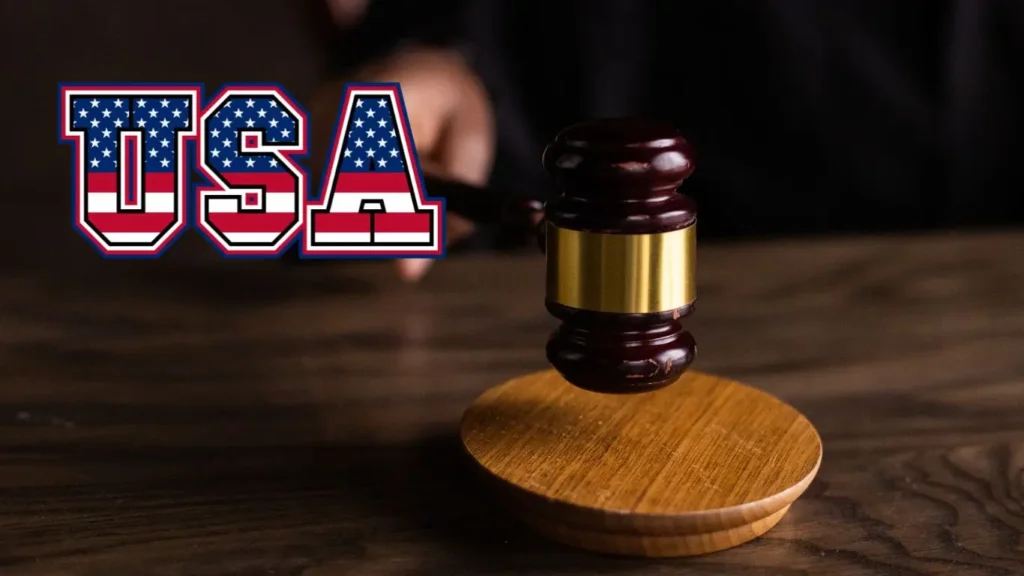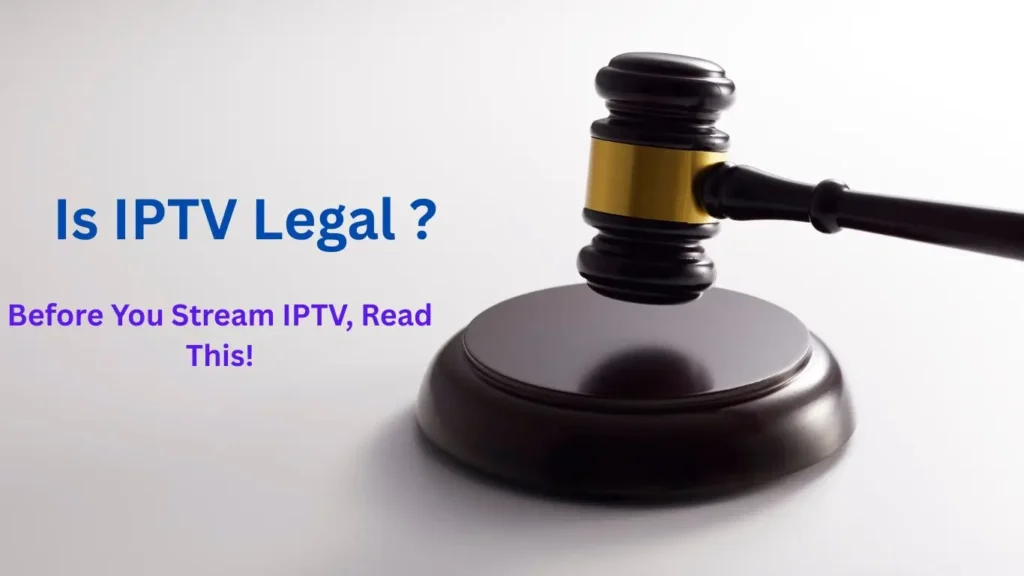Are you using IPTV or thinking about getting a subscription, but still wondering if it’s legal? The answer isn’t always clear, and many users aren’t sure whether the service they’re using is actually allowed.
This post will help clear up the confusion. We’ll answer the question, “Is IPTV legal or illegal?”, explain how to spot the difference, and highlight the risks of using unlicensed services.
Table of Contents
Understanding IPTV and the Legal Basics
What Is IPTV?

Have you ever heard of IPTV? It stands for Internet Protocol Television. it delivers TV content through your internet connection. You can watch live channels, movies, and on-demand content using apps on smart TVs, phones, laptops, and streaming boxes like Firestick.
Legal vs. Illegal IPTV – What’s the Difference?
Traits of Legal IPTV Services
Not all IPTV services are shady. In fact, some of the most popular streaming platforms in the U.S. use IPTV technology the right way. The key difference? Licensing.
Legal IPTV services have proper agreements with the content creators and networks. That means they’re allowed to stream the shows and channels you’re watching. These companies are upfront about their partnerships and are usually listed on official websites or app stores.
Another sign you’re dealing with a legal service is how you pay. Legal platforms accept regular payment methods like credit cards or PayPal, and they often have apps available in the Apple App Store, Google Play Store, or on devices like Roku and Firestick.
Signs of Illegal IPTV Providers
Now, Let’s Talk about Illegal IPTV providers cut corners and stream channels without permission. There are a few red flags that make them easy to spot.
- cheap pricing or Free
- VPN required
- Crypto payments
They might give you access to an expensive library and a wide range of channels, all for a super cheap price.
While these services might work at first, they’re risky. Many get shut down without warning, and users lose their money and access.
U.S. Laws That Regulate IPTV Usage
Digital Millennium Copyright Act (DMCA)
The DMCA is a law passed in 1998 to protect creators from having their work copied and shared without permission. When it comes to IPTV, it plays a big role.
If an IPTV provider streams movies, live sports, or TV shows without a license, they’re breaking this law. Copyright owners can issue takedown requests, and internet providers can even shut off access to these services if they keep violating the rules.
Protecting Lawful Streaming Act (2020)
This law was made to go after the people running illegal streaming services—not the average viewer at home.
It allows the government to charge IPTV providers who knowingly stream copyrighted content without permission. If found guilty, they can face big fines or even jail time.
watching from shady providers can get your internet flagged, or your access cut off by your ISP after repeated warnings.
What Happens If You Use an Illegal IPTV Service?
Real Risks for Viewers
Using an unlicensed IPTV service might seem harmless at first, but there are real problems that come with it:
- Internet Cut-Off from ISPs
Internet providers can track illegal streaming. If they get copyright complaints tied to your connection, they may send warnings. After several alerts, they might slow down or even cancel your internet service. - Exposure to Malware and Scams
Many illegal IPTV apps and websites aren’t safe. Some contain hidden malware that can steal your personal info, track what you do online, or even mess up your device. Fake “support” sites are also common—they ask for payment but never deliver. - Civil Fines (Rare but Possible)
Most of the time, only the providers get in legal trouble. But in rare cases, viewers have received fines for using illegal streams—especially if they shared or promoted them.
Ethical Considerations
It’s not just about breaking the rules. Streaming from shady services takes money away from the people who create the content you enjoy—writers, actors, tech teams, and more.
According to industry reports, piracy costs the U.S. economy over $29 billion each year. That affects jobs, quality, and the future of entertainment.
How to Stay Safe and protect yourself when Streaming IPTV
One of the best ways to protect yourself is by using a VPN to hide your IP address. Without it, your internet service provider can detect your online activity and location.
Using a VPN can also help protect you from hacker attacks or illegal IPTV providers trying to track your IP.
In short, a VPN helps you stay anonymous online.
How to Identify a Legit Service
If you’re not sure whether a provider is legal, here are a few things to check:
- Look for Licensing Info : Real providers mention their deals with major networks or studios
- Stick to Official App Stores : If the app is only available through APK downloads or shady links, skip it
- Avoid Shady Payment Methods – Services that only accept crypto
Final Thoughts – So, Is IPTV Legal in the US?
The short answer: Yes, IPTV is legal—but only if the service is properly licensed.
Choose legal IPTV USA and enjoy better streaming. Illegal services risk legal issues, poor quality, and security problems.
To stay safe and avoid problems like internet cut-offs, scams, or legal trouble, always check that the IPTV provider is legit before signing up.
I hope this guide fully answered the question, “Is IPTV Legal?”
FAQs
Is IPTV illegal in the US for viewers?
No, using IPTV isn’t illegal—as long as the provider is licensed.
Can I get in trouble for watching IPTV?
Most legal action targets the providers, not the viewers. But using illegal IPTV can still lead to issues with your internet provider .
How do I know if my IPTV provider is legal?
Check their website for licensing details and avoid crypto payments.
Still confused about what’s legal?
Contact us—we’ll help you pick a trusted IPTV service that’s safe, legal, and reliable.
Email : support@stella-iptv.com

